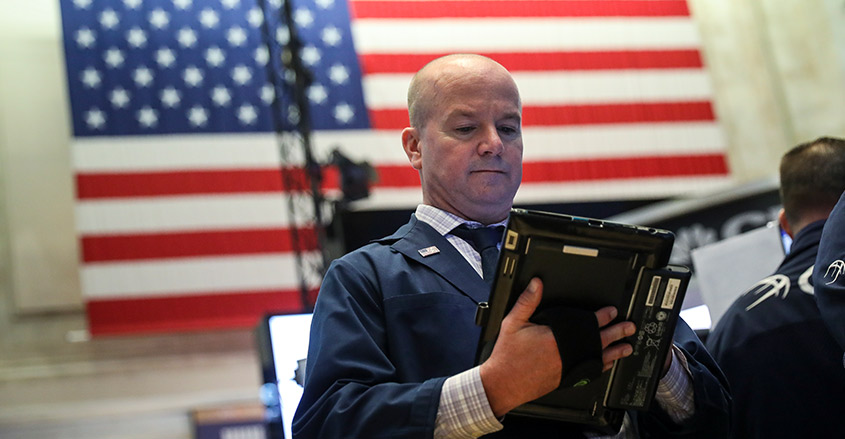Escalating global trade war tensions, fueled by mounting Trump administration bravado, could retrigger the 2008 global financial crisis, warns the World Bank.
This is the grim prediction that the bank foresees in their latest Global Economic Prospects report.
The World Bank is a 189-member international financial institution that provides loans to countries, especially in the developing world, to combat poverty and aid development.
The threat of mounting retaliatory tariffs on the international stage, it warned, could have lasting damage to financial markets.
The World Bank warns that the continual ramping up of tariff threats would set back global business relations by a decade.
“A broad-based increase in tariffs worldwide would have major adverse consequences for global trade and activity,” states the report.
“An escalation of tariffs up to legally allowed bound rates could translate into a decline in global trade flows amounting to 9 percent, similar to the drop seen during the global financial crisis in 2008-09,” continues the report.
Franziska Ohnsorge, the lead author of the bank’s report, stresses the immediacy of the risk.
“The threat of trade protectionism is a real risk. Anything that puts sand in the wheels of global trade is a risk to global growth,” wrote Ohnsorge.
The World Bank report hints that the emerging and developed markets of the world would suffer significantly.
Emerging market sectors like agriculture and food processing would be particularly hit hard.
The hardest-hit areas of emerging markets would be sectors such as agriculture and food processing.
Trade war games
Mounting international trade tensions got underway in earnest earlier this year between the Trump administration and China.
The White House accused China of engaging in “unfair” trading practices, citing a massive trade surplus against the United States.
President Trump threatened to impose up to $150 billion in tariffs on various Chinese imports.
China answered with the threat more than $50 billion in tariffs on American goods.
Currently, the two global superpowers have dialed back the rhetoric and are engaged in negotiations to avoid or minimize tariffs.
However, just as that international tariff drama began cooling down, the Trump administration then imposed severe tariffs on America’s historical allies.
In early June, the Trump administration hit the European Union, Canada and Mexico with significant, trade-harming tariffs.
America’s allies were then hit with 25% increase on steel imports and 10% increase in aluminum imports.
President Trump raised the ire of Canadian Prime Minister Justin Trudeau by saying Canada constitutes a national security threat to the United States.
The World Bank report fears that such escalating tensions are slowing trade liberalization trends. According to the bank, new international trade agreements hit an 18-year low in 2017.
However, some finance experts believe that the World Bank is overreacting.
Julien Lafargue, European equity strategist at J.P. Morgan Private Bank, believes that trade tensions will die down.
“I don’t think we’re going into a full-blown trade war. These are negotiating tactics,” said Lafargue.


